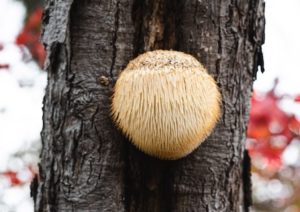Natural Treatments for Obsessive-Compulsive Disorder

The National Institute of Mental Health defines obsessive-compulsive disorder (OCD) as a “common, chronic, and long-lasting disorder in which a person has uncontrollable recurring thoughts and/or behaviors that they feel the urge to repeat over and over.” The disorder is characterized by either obsessive thoughts, compulsive actions or both. Unfortunately, it is often misdiagnosed (Stahnke 2021). This can have serious consequences, since early treatment appears to be more effective for preventing life-long disability.
In cases of OCD, obsessive thoughts often include the fear of germs, or taboo topics, including sex, religion or violence towards self or others. Other individuals with OCD often obsess over symmetry or having things in order.
The compulsions in OCD are repetitive and ritualistic behaviors. They can include excessive washing or bathing, repeatedly arranging things in a particular order, incessant checking of things, including if the door is locked or the oven is off, and compulsive counting. To qualify for OCD, the thoughts or behaviors have to be excessive enough to be interfering with the individual’s life.
Treatments for OCD
OCD has often proven challenging to treat. And while standard treatments sometimes help to reduce symptoms, medication dosages are often high with significant side effects. In addition, around 40-60% of individuals with OCD do not respond well to medical treatment and still have residual, disabling symptoms (Casale 2019).
A number of natural treatment approaches appear to have some benefits for OCD, although full relief and resolution may still be challenging to achieve. Research suggests that the following may be useful for OCD treatment:
- Vitamins B12, E and C
- Vitamin D
- Zinc and selenium
- N-acetylcysteine
- Inositol
- Milk thistle
- Valerian root
Vitamins B12, E and C
While the clinical data is not robust, evidence does suggest that several vitamins play a role in OCD pathology. A recent comprehensive review found that patients struggling with OCD were often low in vitamins B12, E and C. The findings also correlated with higher levels of homocysteine, a brain-toxic amino acid that is reduced by B-vitamins (Balandeh 2021). Case studies of improvements with B12 supplementation in individuals with OCD and B12 deficiency also suggest a link (Sharma 2011, Valizadeh 2011).
While not studied directly in patients with OCD, a study of anxiety levels in high school students found a reduction in anxiety symptoms of 25% with vitamin C supplementation (Oliveira 2015). It is also known that patients with OCD appear to have poor antioxidant status, which may improve with vitamin C and vitamin E supplementation (Maia 2019).
Vitamin D
While initially thought to just regulate calcium uptake, it is now clear that vitamin D has numerous additional effects. Vitamin D plays a role in immune function, both in helping to fight infections and in helping to suppress excessive immune activity. Data even suggests that vitamin D may help prevent autoimmune conditions (Harrison 2020).
In the brain, vitamin D also has a couple of roles. First, vitamin D helps increase glutathione levels, the body’s master antioxidant. And second, vitamin D is critical for enzymes involved in the production of numerous neurotransmitters, including serotonin and dopamine (DeLuca 2013).
A study in children found a non-significant trend towards lower levels of vitamin D in OCD patients. In addition, symptom severity was worse in patients with lower levels of the vitamin (Yazici 2018). While there is talk about it’s potential benefits for OCD treatment, clinical trials are needed to know for sure (Michele 2018).
Zinc and Selenium
Typically considered a mineral for supporting the immune system, zinc has a number of other roles, including influencing aspects of brain function (Frederickson 2000). A small clinical trial combined medication and zinc or placebo for treatment of OCD. The trial found modest but significant improvements in symptoms with the addition of zinc (Sayyah 2012).
Selenium is a separate trace mineral that is critical for antioxidant defenses. In treatment resistant OCD, the addition of selenium to medication significantly improved OCD symptoms. Considering the challenges in treating resistant cases, the findings beg for replication (Sayyah 2018).
N-Acetylcysteine
N-acetylcysteine is a combination of vinegar (acetic acid) with the amino acid cysteine. It acts as a precursor to glutathione, the body’s master antioxidant. Beyond glutathione, it can help to calm the brain by regulating the excitatory neurotransmitter glutamate. Excessive glutamate appears to be correlated with a number of mental health conditions, including OCD (Pittenger 2011).
As a treatment, N-acetylcysteine is one of the better studied integrative approaches for OCD. A recent review that included four clinical trials concluded that the supplement helped reduce OCD symptoms (Hadi 2021).
Inositol
A sugar alcohol used in our cell’s “second messenger system,” inositol may be helpful for OCD. Inositol (sometimes referred to as myo-inositol) is used to help relay signals from the cell membrane to the cell interior. Numerous neurotransmitters utilize the inositol second messenger system, including serotonin and dopamine.
An initial study on OCD found it to reduce symptoms (Fux 1996). However, two additional studies, one combined with medication and one on treatment resistant OCD, found no significant benefits (Seedat 1999, Fux 1999). As such, more research is needed to best understand inositol’s effects.
Milk Thistle
While generally considered an herb for supporting liver function, there is research exploring milk thistle’s use for OCD. In a clinical study, milk thistle was found to be as effective as medication for symptom reduction (Sayyah 2010). Case reports have also documented benefits in OCD with milk thistle (Grant 2015). The herb is generally well tolerated, although it is in the same family as ragweed, a common seasonal allergen. Individuals with ragweed allergies might occasionally react to the herb.
Valerian

As an herb, valerian root is popular for treating insomnia due to its sedative properties. While the data on using valerian for treating anxiety disorders is not robust, there is a clinical trial on its use for OCD. The study compared valerian to placebo and found significantly more benefits with valerian for treatment (Pakseresht 2011). Like a lot of natural approaches, additional clinical trials would be welcome to confirm the benefits.
Conclusion
OCD is often a debilitating condition that presents significant challenges for treatment. While medication does benefit some cases, patients are often still left with concerning residual symptoms. Several nutrients may help in treatment, including vitamins B12, C, E and D, along with zinc and selenium. In addition, N-acetylcysteine, inositol, milk thistle and valerian may help to reduce the severity of symptoms.



